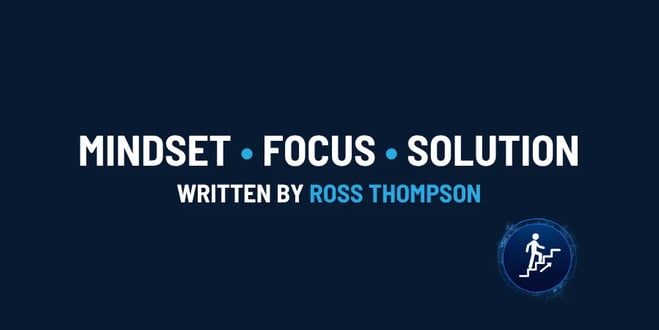

The Difference Between Coach And Mentor
When your teenager is struggling with behaviour, attendance, mental health or their mindset, you may find yourself asking: “What’s the right kind of support for them?” In your search for help, you’ll often come across two roles: coach and mentor. But what’s the difference between coach and mentor? How do you know which your child needs?
In this article, we’ll unpack the difference in a way that’s clear and relevant to you as a parent. You’ll come away understanding how coaching or mentoring can help your teenager take back control, build resilience and move forward – and how you can be supported as a parent in the process too.
Struggling Teenager? Why Knowing The Difference Between Coach And Mentor Matters
If you're here, chances are you're worried. Maybe your teenager refuses to go to school, is constantly in trouble or seems stuck in a negative mindset. You’ve tried reasoning, consequences, encouragement – nothing sticks. You’re exhausted, anxious and wondering what else you can do.
Many parents in your position feel powerless, especially when school interventions don’t seem to work and professional services have long waiting lists. You might’ve heard about mentoring programmes or coaching support, but with so many terms being thrown around, it’s hard to know which one is right for you and your teenager – or whether it’ll make any real difference.
That’s why understanding the difference between coach and mentor is more than just semantics. The right support, at the right time, can change the direction of a young person’s life and bring relief and hope back to yours.
Coaching Or Mentoring – What’s The Actual Difference?
Both coaches and mentors work to support growth, but their approach and focus are different. Knowing which your teenager needs can help you take the right next step.
A mentor is typically someone who shares their experience, offers guidance over time, and builds a relationship based on trust and advice. It’s often informal and long-term. Think of a mentor like a wise guide who walks alongside your child and shares lessons they’ve learned.
A coach, on the other hand, focuses on helping your teenager find their own solutions. It’s structured, goal-oriented and often short-to-medium term. A coach doesn’t tell your teenager what to do. They help them explore what’s going on, challenge their mindset and build strategies to move forward.
Looking into this a bit closer, a coach will provide sessions that are goal and outcome-focused, where limited beliefs are challenged during sessions and strategies are put in place to empower decision making. Coaching sessions will also focus on mindset, behaviour and development. A mentor will provide advice, guidance and support, and this will usually come from personal and professional experience.
For teenagers who are stuck in a pattern of avoidance, anger, defiance or emotional shutdown, coaching can offer an immediate, focused approach that helps them get unstuck. That said, mentoring can also play a valuable role, especially when consistency and trust-building over time is needed.
Coaching Young People: A Powerful Approach For Change
The type of coaching I offer is specifically designed to support young people who are struggling – including if they’re at risk of permanent exclusion, dealing with poor mental health or showing signs of a fixed mindset.
Here’s how coaching can help your teenager:
Helps them take responsibility for their choices and behaviour
Rebuilds their confidence by identifying strengths and small wins
Challenges limiting beliefs and negative thought patterns
Supports emotional regulation through simple, proven strategies
Provides structure and goals to work towards with support
When coaching is done right, young people don’t feel talked at – they feel heard. They’re invited to step into their own power, and they learn how to take back control of how they think, behave and respond to challenges.
The Transformation: What Parents And Teenagers Gain
So what does this look like in practice?
Parents have shared how their once-shut-down teenager began opening up. School staff have seen improved attendance and engagement. Most importantly, young people start to believe they can change and begin making better choices from a place of understanding, not shame.
Here’s what parents often notice after attending my online targeted sessions for parents or after one-to-one coaching with their teenager:
Better communication at home
More effort and engagement at school
Improved mood, emotional awareness and resilience
A more hopeful, forward-looking mindset
They also feel more empowered themselves. Coaching isn’t just about the teenager – it’s about equipping you as a parent with tools, language and insight to keep progress going between sessions.
Coaching Or Mentoring: Which Does Your Teenager Need?
Every young person is different. For some, mentoring can offer that regular, non-judgemental space to talk. For others, especially those stuck in negative patterns or heading towards exclusion, coaching provides the structure, strategy and challenge needed to break the cycle.
The good news? You don’t have to choose alone.
My sessions – from One-to-One Coaching for Young People to targeted sessions like Responding To Mental Health In Teenagers, Resilience & Mindset, At Risk Of Permanent Exclusion, Take Back Control (Challenging Teenagers) and Access & Attend School – are designed to offer the right support at the right time.
I also offer parent consultations, which provide us an opportunity to work closely to help understand more complex situations and provide you with the right advice and guidance to help you approach the situation in a solutions-focused way with clear direction.
Ready To Take The Next Step?
If your teenager is struggling with poor behaviour, low resilience, or emotional challenges, now is the time to act. You don’t have to wait until things get worse. You don’t need to face this alone.
Click here to find out more about the targeted sessions available to support parents or click here to find out more about the direct work I can offer to your teenager.